This year’s Big Read Lakeshore title celebrates poetry with a collection from current US Poet Laureate Joy Harjo.
Writing poetry may seem intimidating, but it doesn’t have to be. Read on and learn how to get started making your own blackout poetry.
What is blackout poetry?
Blackout poetry, also called erasure or crossout poetry, is a type a found poetry—poems that use words or language from other, already published works to create new art. Blackout poetry does this by crossing out all but a few lines on the page, leaving behind scattered phrases and words that form a new idea or sentence.
Poems can be serious or funny, profound or just provide a new way of looking at things. It’s that simple. Grab a marker and get started, or see the instructions below for a step-by-step example.
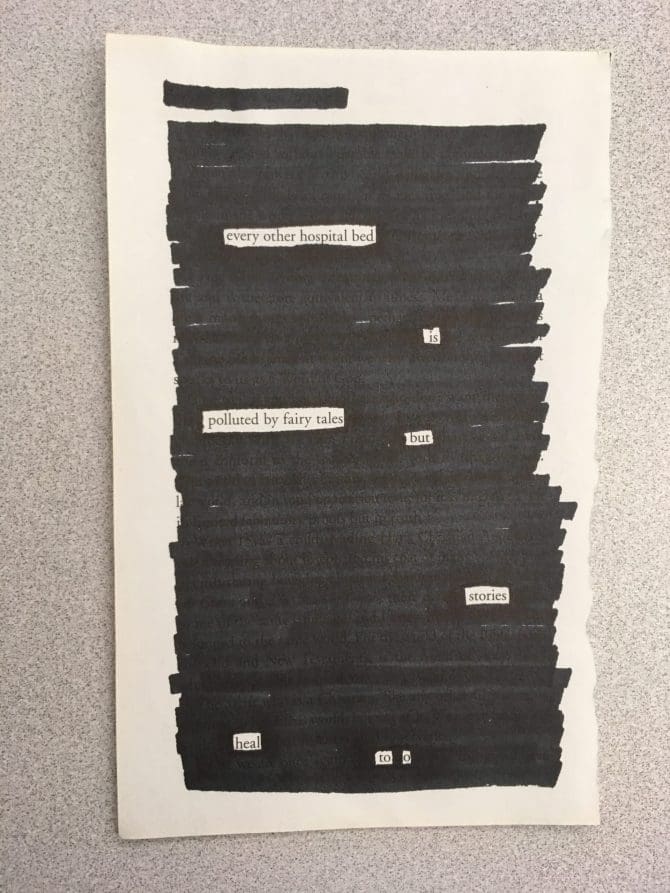
Wait, is it really okay to use books to make poetry?
Yes! But it is true that you won’t be able to read a book or newspaper article like you normally would after it’s been used to make blackout poetry, so pick a book that’s old, falling apart, or damaged, or grab something with a shorter shelf life, like a newspaper or magazine. We do ask that you don’t write in your library books, though.
The following example was made from a copy of Madeline L’Engle’s Walking on Water that was removed from the library collection due to water damage.
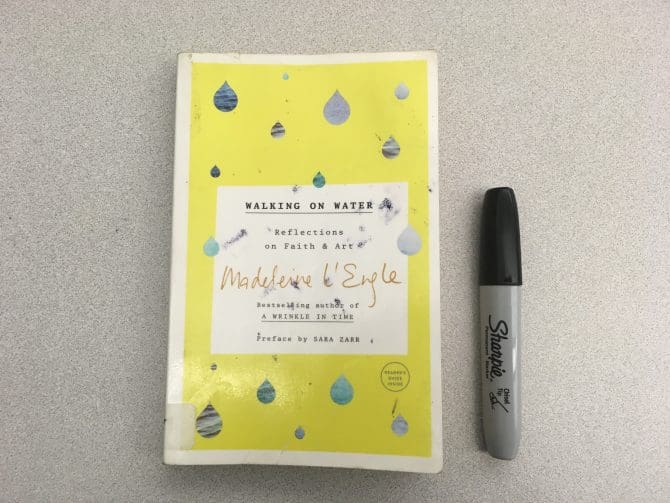
1. Find a favorite word or phrase
Start by skimming your chosen text to find a phrase or group of words that stand out to you.
2. Find other words or phrases
Then look for other words or phrases that are similar enough to—or different enough from—your original phrase to make an interesting idea.
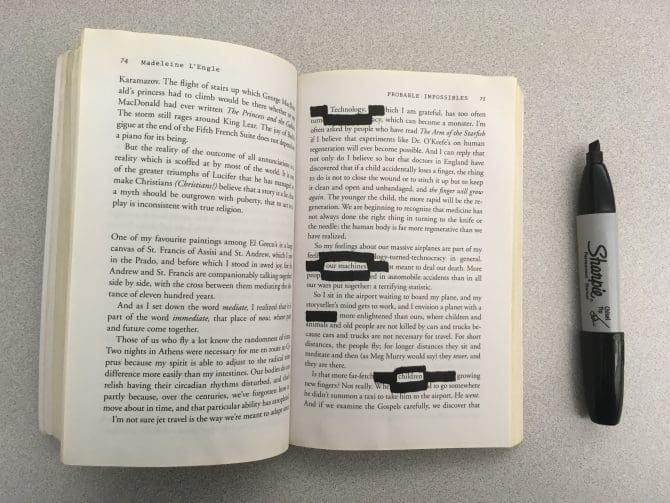
3. Connect those bits together
Fill in the gaps between your chosen phrases with conjunctions and other small words as necessary.
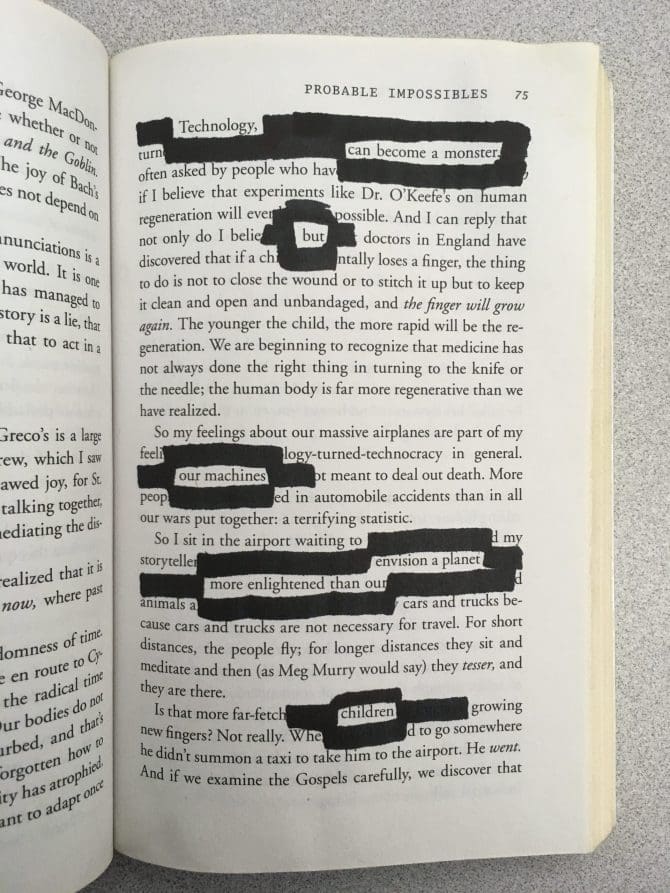
4. Color in the rest
Use your marker (or pen or paint or pencil) to remove the remaining words on the page.
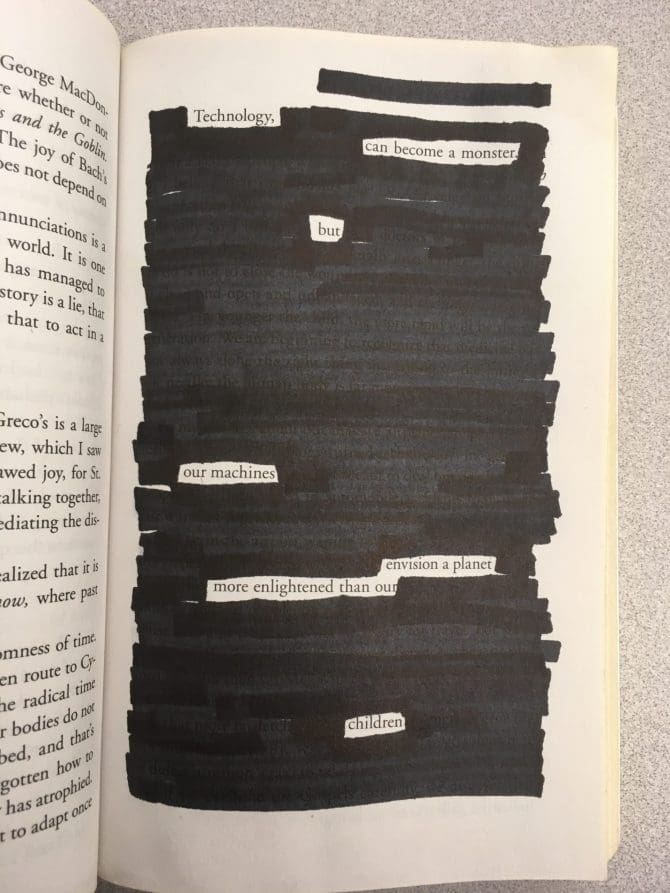
And that’s it! It might take more than one try to get a poem right, so feel free to start with a pencil before committing to something more permanent. And don’t worry if you can’t get every page or article to turn into a poem; some are more suited to it than others.
Looking for more inspiration? Sign up for our in-person Blackout Poetry Workshop on November 6 or stop by either Herrick branch from November 8-13 to pick up your own Blackout Poetry Take & Make kit.
Then check out these examples of blackout poetry made by HDL staff members and get creating!
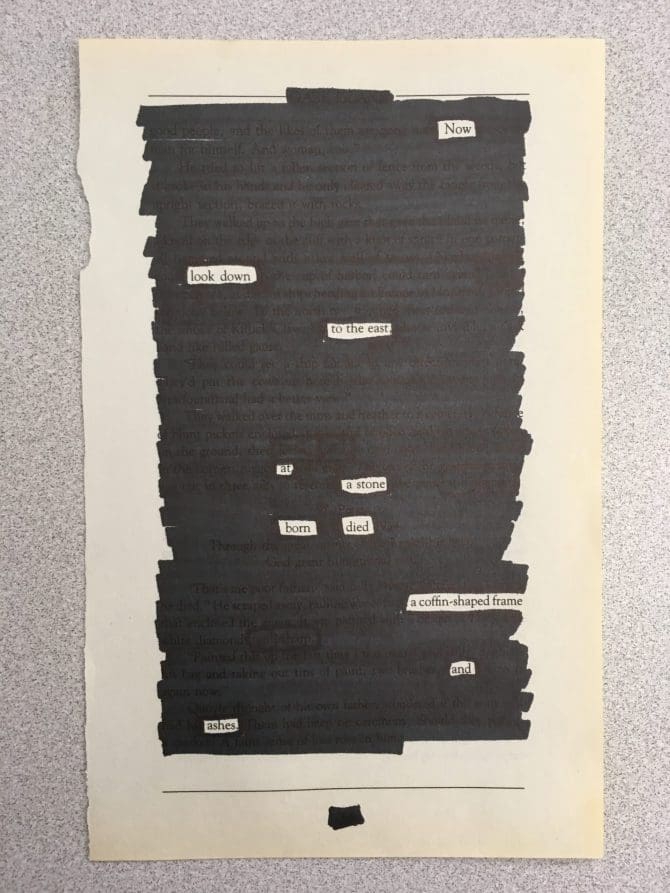
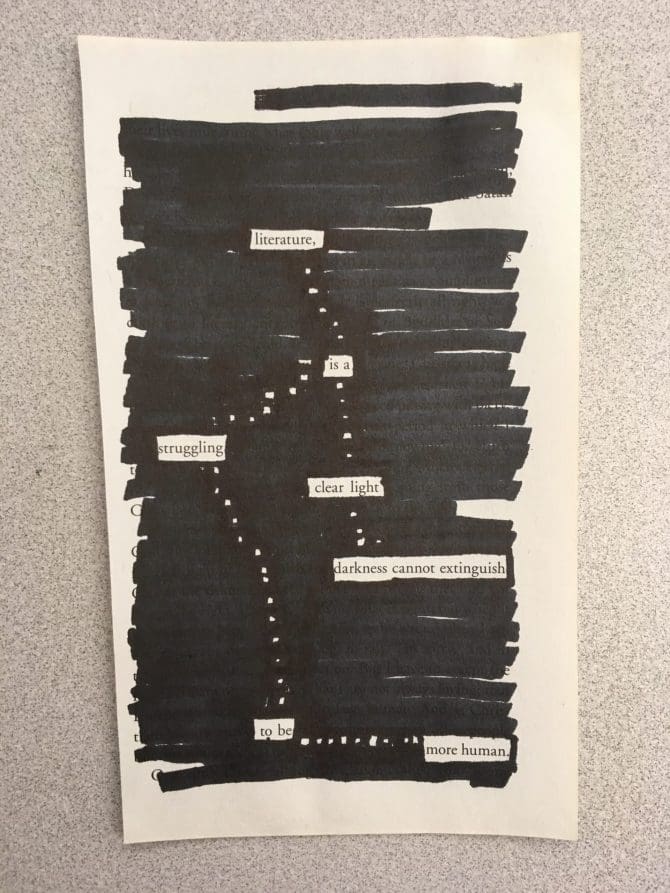
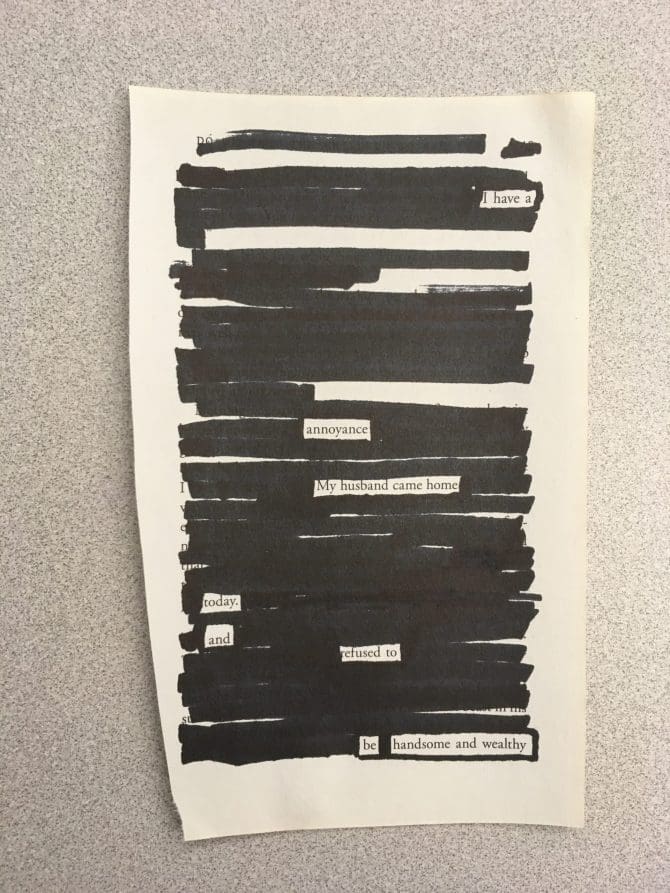
Still looking for more? Check out this book of blackout poetry made from newspaper articles: Newspaper Blackout


